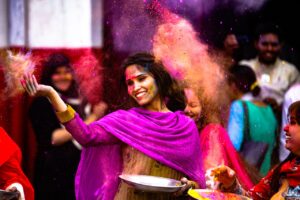Utkal Diwas(Odisha Day) is an annual celebration in the state of Odisha, India, held on April 1st to commemorate the formation of the state as a separate province on this day in 1936. The day holds great significance for the people of Odisha as it marks the end of British colonial rule and the beginning of a new era of self-rule and governance.
Importance of Utkal Divas | Importance of Odisha Day
The history of Odisha dates back to ancient times when it was a powerful kingdom under the Kalinga Empire. The state has a rich cultural heritage and has contributed significantly to the development of Indian art, literature, and architecture. Despite this, Odisha remained a part of the Bengal Presidency during the British colonial era, which left the people of the state feeling neglected and marginalized.
The demand for a separate state gained momentum in the early 20th century, with leaders such as Madhusudan Das and Utkal Gourav Madhusudan Rao spearheading the movement. The struggle for a separate province continued for many years, with numerous protests, strikes, and demonstrations. Finally, on April 1st, 1936, Odisha was granted statehood as a separate province, with Cuttack as its capital.
History Behind Utkal Diwas | Utkala Dibasa History | Odisha Day History
April 1st, 1936 is a significant date in the history of the state of Odisha, India. It marks the formation of the Utkal State, which was the culmination of the long struggle of the Odia people for self-rule and autonomy. The Utkal State was the precursor to the modern state of Odisha that we know today.
The story of Utkal State goes back to the colonial era when Odisha was under British rule. The British had divided the region into several administrative units and merged it with neighbouring provinces. This caused a sense of alienation among the people of Odisha, who felt that their cultural and linguistic identity was being threatened. The Odia people were determined to regain their autonomy and establish a separate state.
The movement for Utkal State began in the early 20th century when a group of Odia intellectuals and leaders formed the Utkal Sammilani, a socio-cultural organization aimed at promoting the Odia language and culture. They also demanded the establishment of a separate province for Odia-speaking people. The movement gained momentum in the 1920s when the Indian National Congress supported the cause of the Utkal State.
After years of struggle and agitation, the British government finally conceded to the demand for a separate state. On April 1st, 1936, the Utkal State was officially formed, with Cuttack as its capital. The new state comprised the districts of Cuttack, Puri, Balasore, Sambalpur, Ganjam, and Koraput. The Utkal State was named after the ancient name of Odisha, which was Utkala.
The formation of Utkal State was a momentous occasion for the Odia people, who finally had a state of their own. It was a time of great celebration and joy, with people taking to the streets to celebrate the occasion. The formation of Utkal State also marked a significant milestone in the history of the Indian freedom struggle, as it was one of the first instances of a successful demand for linguistic autonomy.
Today, April 1st is celebrated as Utkal Divas, or Odisha Day, to commemorate the formation of the Utkal State. The day is marked by cultural programs, parades, and flag-hoisting ceremonies across the state. It is a time to celebrate the rich culture, heritage, and language of Odisha and to remember the sacrifices and struggles of the Odia people in their fight for self-rule.
Utkal Divas is a time to celebrate the achievements and struggles of the Odia people and to renew our commitment to upholding the values of freedom, democracy, and justice. It is an opportunity for the people of Odisha to reflect on their rich cultural heritage and the struggle for self-rule. It is a time to celebrate the achievements of the state and to renew its commitment to preserving and promoting the unique culture and traditions of Odisha. The day serves as a reminder of the sacrifices made by the leaders and activists who fought for the state’s independence and the need to continue to work towards progress and development.




